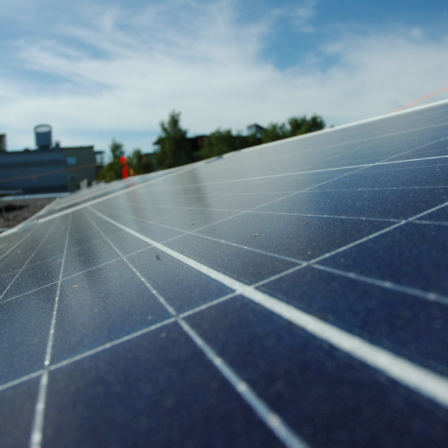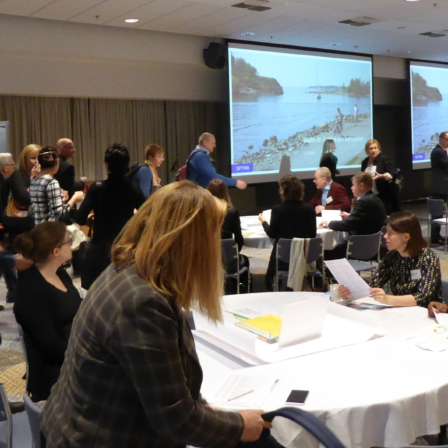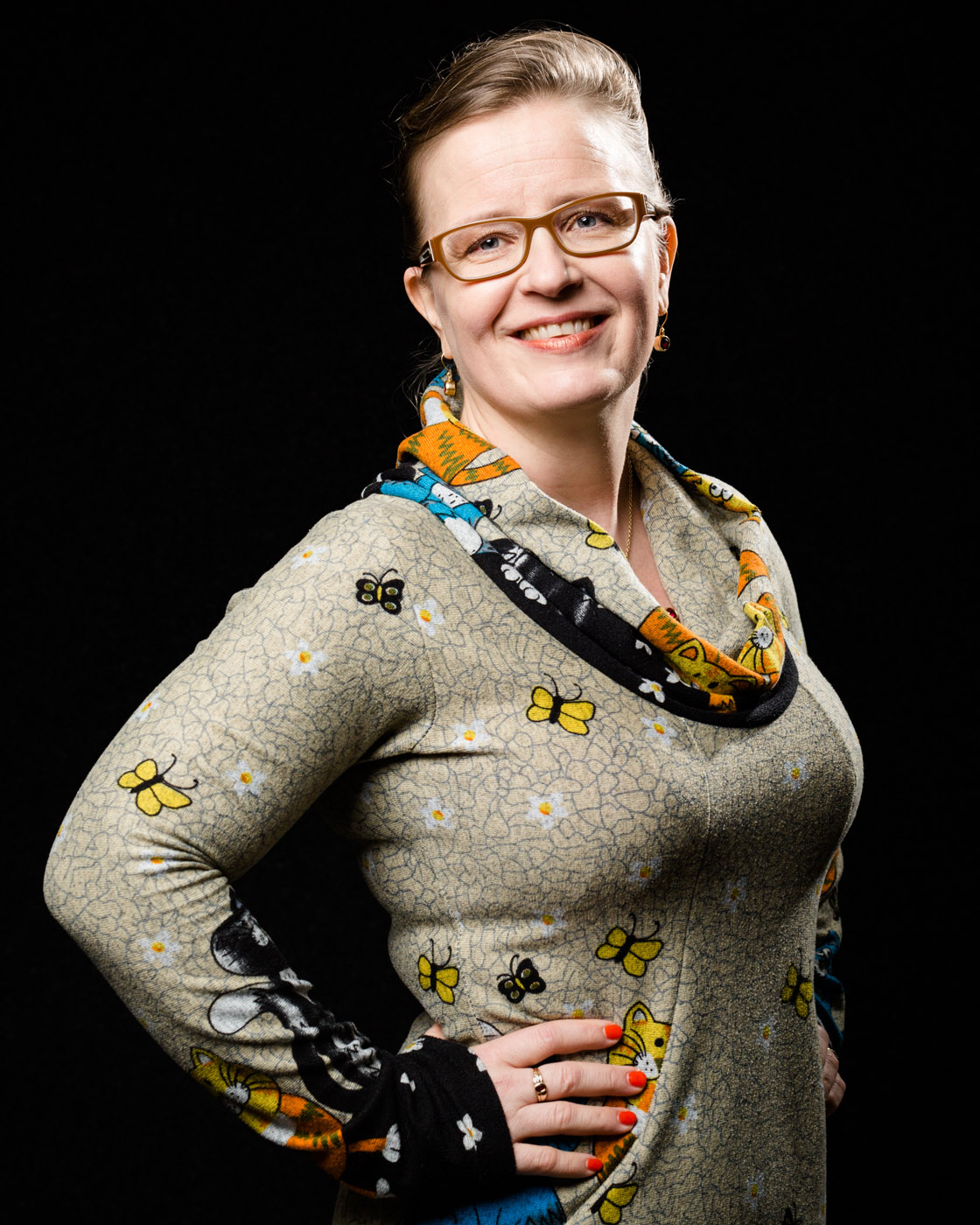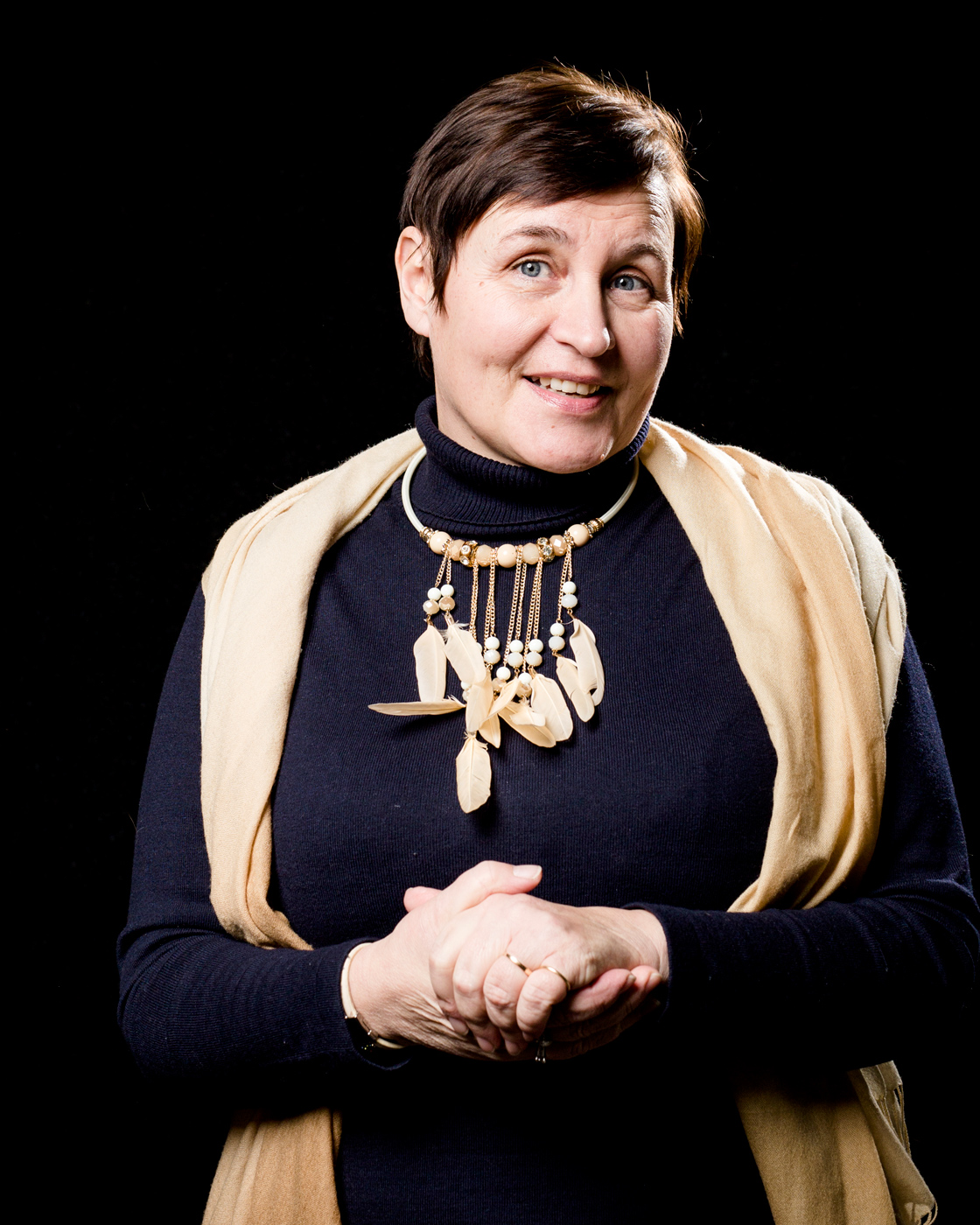Carbon-neutral Sitra
Thanks to clever solutions, Sitra is now carbon-neutral.
Finland will succeed in the future as a forerunner in sustainable well-being. That is why we wanted our own organisation to become carbon-neutral and encourage Finnish companies to set an example. We challenged the whole organisation to join in and change the way things are done at Sitra. We also wanted to ensure that we end up having to compensate for the smallest possible quantity of greenhouse gas (GHG) emissions produced through our activities.
What was achieved?
By managing to cut emissions from its office premises and business travel by 45% compared to the previous year, Sitra has been carbon-neutral since 2016. To achieve this, we have focused on reducing Sitra’s own carbon footprint, exploring topics such as energy consumption in offices, events organised by Sitra and employee travel.
And since everyone’s actions matter, we have provided our personnel with guidance on how to switch to a lower-carbon way of life, encouraging them in material efficiency, saving energy and using low-carbon transport. For instance, we have rewarded people for using the stairs instead of taking the elevator.
Sitra funds all activities with the profits from our investments, and therefore it is also important for us to be a responsible investor. The majority of Sitra’s investments is allocated in funds. We have been promoting responsible investment activities in the UNPRI network since 2013. We will continue to encourage all funds to measure and report the carbon footprint of their investment portfolios.
Energy use
Sitra is a tenant in a building owned by pension fund Varma, and Sitra does not have a separate agreement for electricity or district heating. In June 2016, solar panels were installed on the rooftop of our building, on Sitra’s initiative. The solar panels minimise the amount of energy purchased from the markets. The energy used in the building is not green. However, Sitra has been able to “zero down” the carbon emissions from the energy it uses by purchasing an equivalent amount of wind power certificates and district heating produced with biogas.
Travel
Sitra’s work involves quite a lot travel abroad. We compensate for the carbon emissions caused by flights and other business travel.
For short distances, we have encouraged our employees to use city bikes, Sitra’s own bikes and electric bikes, public transportation or to rent an electric car.
We have encouraged staff to reduce unnecessary travel between home and the office through remote work. This has involved developing both the equipment and practices necessary to enable attending meetings from home.
We have also encouraged our employees to use bicycles in their daily life. In autumn 2016 we rewarded people for active mobility by offering them free maintenance for their own bikes.
Events
At Sitra, we arrange a lot of meetings and events which include the provision of food and drinks. Most of these events are organised within our own premises. We have decided that the carbon dioxide emissions from the event locations should be the responsibility of the owner of the venues, and the travel by participants the responsibility of their own organisations. This leaves us to settle the emissions from the food and beverages served.
We have encouraged serving low-carbon food and drinks by excluding meat. Event organisers have also been informed about best practices for reducing their carbon emissions. So far, we have not been able to find tools for measuring the carbon emissions from food and beverages served, so these are excluded from the compensation.
Who participated?
Big changes are always achieved together. Sitra has been involved in WWF’s Green Office system since 2010. We measure our carbon emissions based on the official GHG Protocol. In addition to mandatory elements, we have also included the following in our calculations: waste; procurement and services, including ICT equipment and services such as cloud services; all travel and events.
We have purchased wind power certificates and district heating produced with biogas from Helen Oy. Varma, the owner of our real estate, has installed solar panels on the rooftop to cut down electricity costs. Sitra’s employees have also contributed their share by working more from home and using low-carbon travel options.
We measure our emissions with WWF’s climate calculator. The remaining emissions have been compensated via Nordic Offset Oy. In 2016 we chose the Gold Standard-certified project producing improved cookstoves for social impact in Uganda.
What next?
We will continue measuring and reducing Sitra’s carbon footprint in future. Carbon neutrality will be reached by compensating for the remaining emissions that cannot be avoided.
LATEST
New and interesting





WHAT IS IT ABOUT?
Closed project: December 2015 to December 2016